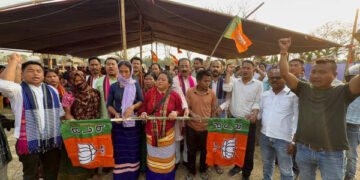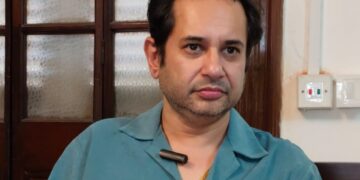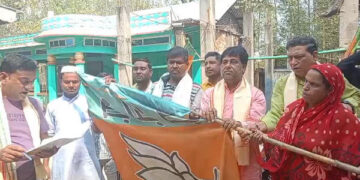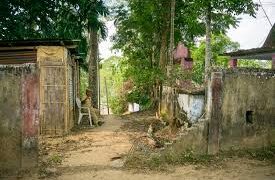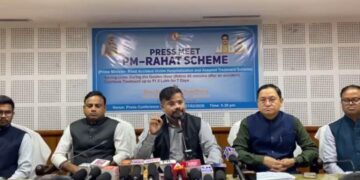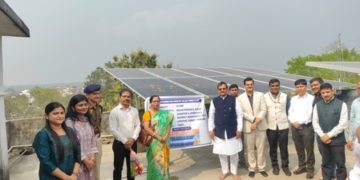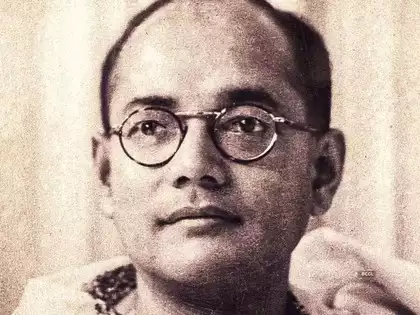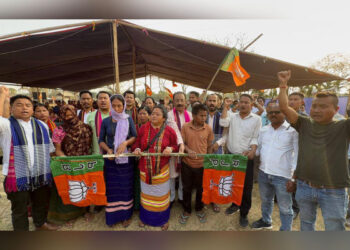Agartala, January 23: The 129th birth anniversary of Subhas Chandra Bose, a revolutionary leader in India’s War of Independence, was celebrated with patriotic zeal in Agartala on Thursday, alongside nationwide observances of the day, now known as ‘Parakram Diwas.’
The main event in the Tripura capital was organized by the students of Netaji Subhash Vidya Niketan School, where Chief Minister Manik Saha and other dignitaries paid homage to the iconic leader.
Agartala city Mayor Dipak Majumder was also present, while former MLA Dilip Das hoisted the Azad Hind Flag to honor Bose’s legacy.
Chief Minister Saha inaugurated the event by hoisting the National Flag and addressed the gathering, urging the younger generation to learn from the life of Subhas Chandra Bose, who famously declared, “Give me blood, and I promise you freedom.”
The celebrations featured a vibrant rally that showcased Bose’s ideology and the freedom struggle.
Participants highlighted themes of communal harmony, India’s cosmopolitan heritage, and the social evils still afflicting society.
School students, clubs, and organizations took part, while thousands of spectators lined the streets of Agartala to witness the procession despite the chilly morning weather.
In his address, Chief Minister Saha recalled Bose’s significant contributions during World War II, noting his alliances with the Soviet Union, Germany, and Japan to challenge British rule and liberate India.
He lauded Bose’s leadership in forming the Azad Hind Sarkar and Fauj, calling it India’s first independent government and military force, aimed at achieving total independence.
Saha also emphasized the Modi government’s recognition of Bose’s legacy, including the declaration of his birth anniversary as ‘Parakram Diwas’ in 2021 and renaming landmarks associated with him.
The rally traced the history of India’s freedom movement, focusing on Bose’s pivotal role in fostering unity, communal harmony, and awareness on critical social issues. Other themes depicted included love for nature and animals, societal taboos, and youth-oriented challenges.
Subhas Chandra Bose, popularly known as ‘Netaji,’ was born in Cuttack, Odisha, into a prominent Bengali family.
A revolutionary at heart, Bose believed that armed struggle was essential to secure India’s freedom, diverging from Mahatma Gandhi’s approach of civil disobedience.
His leadership of the Indian National Army (INA) and collaboration with Japanese forces during World War II remain defining chapters in India’s freedom struggle.
The procession to honor Bose in Agartala began in 1950 and gained official recognition in 1980, becoming an annual tradition. This year’s event celebrated Bose’s enduring legacy as the “beloved leader” who ignited revolutionary ideals and unity across the nation.
The day’s celebrations concluded with participants reaffirming their commitment to Bose’s vision of a free, united, and progressive India.

